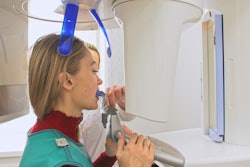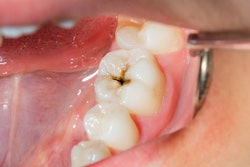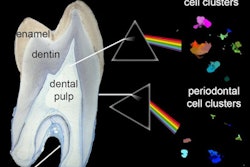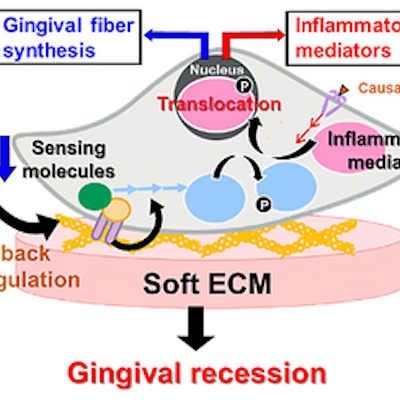
Researchers at Tohoku University in Sendai, Japan, have shed light on biological activity related to gingiva fibroblasts, cells that help produce fibers that hold our teeth in place, according to a news release issued by the university.
A group led by Dr. Masahiro Yamada, PhD, of the university's school of dentistry, created an artificial culture environment that simulated soft or hard gingiva. They discovered that simulated hard gingiva stiffness activated a process involving fibroblasts that prevented inflammation.
On the other hand, simulated soft gingiva suppressed the noted fibroblastic anti-inflammatory system and increased the likelihood of inflammation. It also resulted in less collagen synthesis, they found.
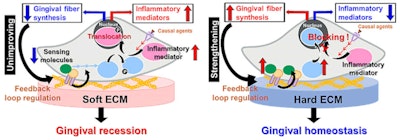 Possible cellular mechanisms underlying substrate stiffness-mediated proinflammatory responses of human gingival fibroblasts. Image courtesy of Tohoku University.
Possible cellular mechanisms underlying substrate stiffness-mediated proinflammatory responses of human gingival fibroblasts. Image courtesy of Tohoku University."Our research is the first to demonstrate the biological mechanisms at play in regard to a patient's gingival properties," Yamada said.
Previous studies have shown that individuals with thick or stiff gingiva are less susceptible to gingival recession. While fibroblasts play an important role in the maintenance, repair, and healing of the gingiva, they also produce various inflammatory and tissue-degrading biomolecules that can degrade gingival fibers. Ultimately, the research sheds light on the mechanisms involved in these processes.
"The results are expected to accelerate the development of advanced biomaterials to control local inflammation or microdevices that simulate the microenvironment of inflammatory conditions," Yamada concluded (Sci Rep, January 24, 2023, 13, 1358).




